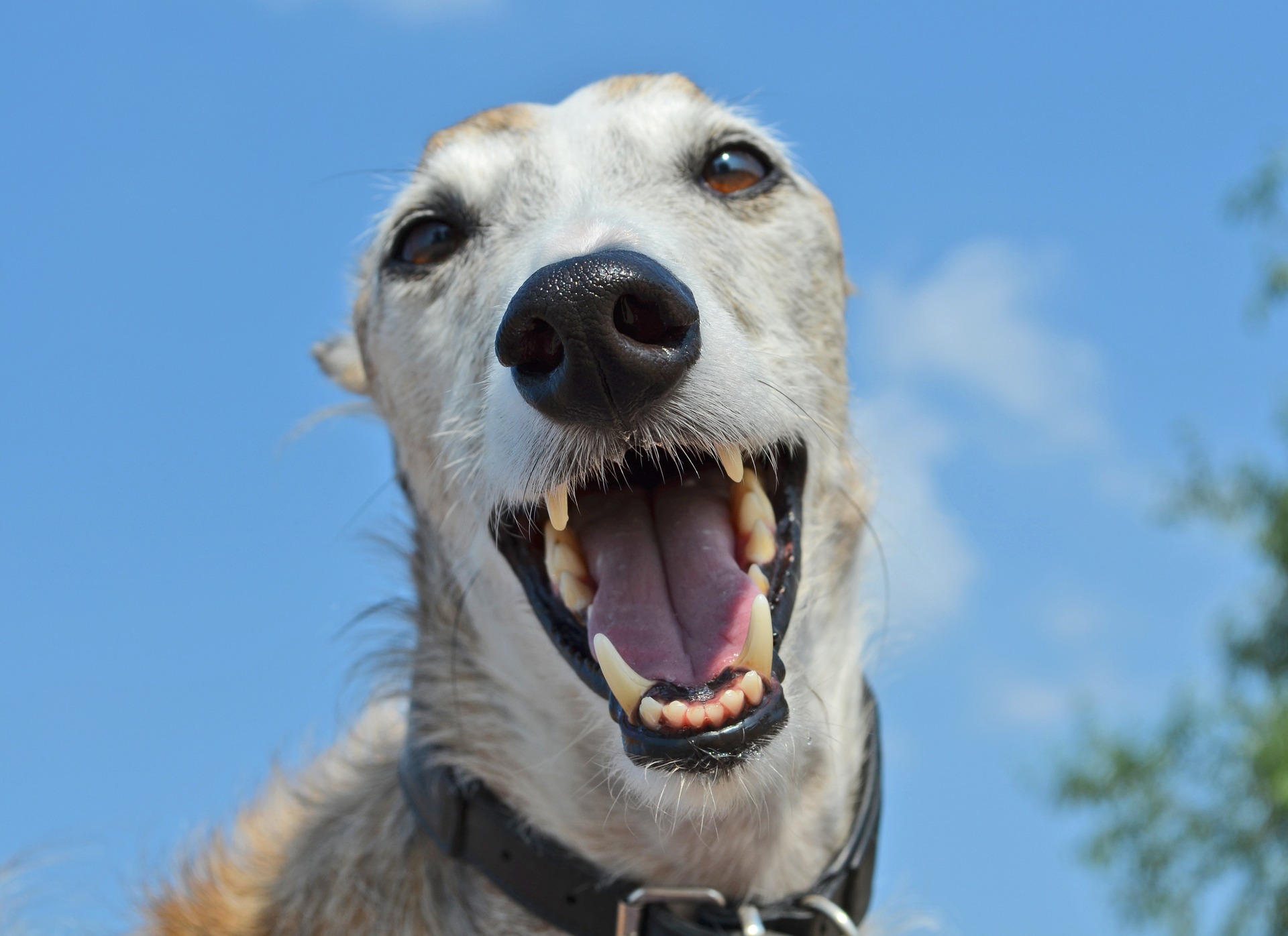As with humans, a dog’s dental health significantly impacts its overall health. Bad dental hygiene can lead to periodontitis, which affects a large percentage of mature dogs. In turn, periodontitis causes pain, gum erosion, eye issues, and/or oral cancer. Luckily, there are preventative measures you can take to protect your pup and keep their teeth in tip-top shape. Here’s what you need to know about doggie dental care.
- Brush their teeth! Though it may sound silly, brushing your dog’s teeth can be vital in maintaining a healthy mouth. The bacteria that cause periodontitis can build up in less than 48 hours, so ideally, your dog’s teeth should be brushed once every day or two. Soft-bristled brushes made specifically for pets can be found at any pet store. Even more manageable than a standard brush is a finger brush, which slips onto your index finger and gives you better control of where you are scrubbing. Pet-safe toothpaste is also a must–human toothpaste should never be swallowed, so it is harmful to use on dogs that will naturally swallow it. Plus, toothpaste made for dogs usually has a delicious flavor that gets your pet excited for brush time. Use a gentle circular motion when brushing their teeth; never scrub too hard, as this can cause gum bleeding and make them less willing to sit for it next time.
- Put their food to work. Dry kibbles are better overall for dental health than wet food. The kibbles scrape their teeth as they chew and help prevent plaque buildup. On the other hand, Wet food can stick to the teeth and get tucked up in their gums, allowing bacteria to grow. While it is still okay to occasionally give wet food, you should make sure that the majority of your dog’s diet is dry kibbles.
- Chew toys and dental treats are also great! Certain chew toys can help clean your dog’s teeth. These toys will be tough but have enough softness that they won’t cut your dog’s gums or break their teeth the way that some hard bones do. Dental treats are tough and chewy and made with unique shapes that help scrape plaque off as the dog chews. Unsure if a product will help? Look for the Veterinary Oral Health Council (VOHC) seal on the packaging that indicates it is certifiably suitable for removing tartar and plaque.
- Veterinary dental cleanings. Of course, the best way to stay on top of your dog’s dental health (and health overall) is to visit your veterinarian regularly. The vet will be able to monitor your pup’s overall health over time, and annual dental cleanings give them a chance to catch gum disease early and recommend treatment. Dogs should have their first teeth cleaned at age two or three, then go at least once a year after that. Small dogs and brachycephalic dogs (smush-faced like pugs and Shih-Tzus) should visit twice a year, as they are more prone to periodontitis.
As pet owners, we are responsible for the comfort and well-being of our animals. Dental hygiene is a crucial facet of your dog’s health that often goes unnoticed–make sure your dog remains healthy and happy by investing in their oral health.
Gulf Coast K9 Dog Training is an obedience and training school located in Bradenton, Florida.





